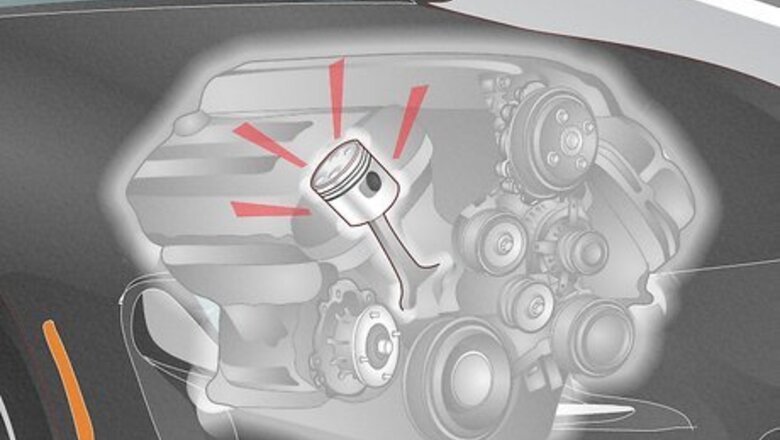
views
- Shaking while accelerating could be caused by misfires, crankshaft damage, transmission failure, CV joint damage, or a cracked engine mount.
- Do not continue driving if your vehicle shakes when you accelerate. You may cause serious damage to your engine or lose control of the vehicle at any moment.
- Turn the car on and pop the hood to see if the engine shakes, and monitor the tires to see if they wobble. This will help you narrow the problem down.
Potential Causes
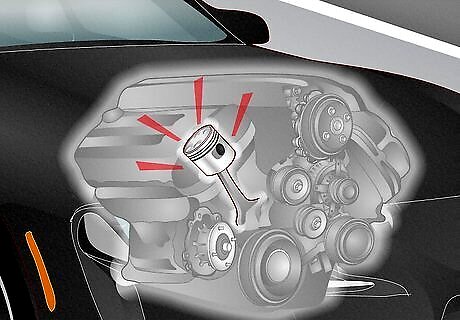
Misfiring engine A misfire is when one of your engine’s cylinders doesn’t fire correctly because there’s an issue with the fuel, air, and spark ratio that generates combustion. If a cylinder is misfiring, it can cause the engine and vehicle to shake. This shaking will go away when you take your foot off the gas and coast, since the cylinder doesn’t fire when you’re coasting. The fix: You may need to replace your spark plugs, fuel injectors, or mass airflow sensor. It could also be some other component. Diagnosing and fixing engine misfires can take a fair bit of time and work, so see a mechanic. The cost: Depending on the specific component that needs to be repaired, it could run $100-3,000, although its more likely you’ll end up spending under $500.
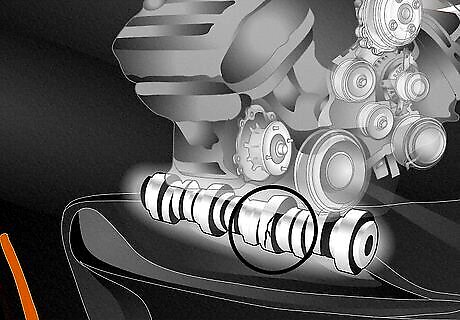
Cracked crankshaft The crankshaft is the backbone of your engine, and it spins to convert the linear motion of the cylinders into rotational energy for the transmission. If the crankshaft is cracked or damaged, it will cause shaking when you accelerate. That shaking will go away when you coast and the crankshaft stops spinning. The fix: See a mechanic to get your crankshaft replaced. This component is relatively complex, so you may need to see a specialist. The cost: The average cost to repair or replace a crankshaft is around $2,500.
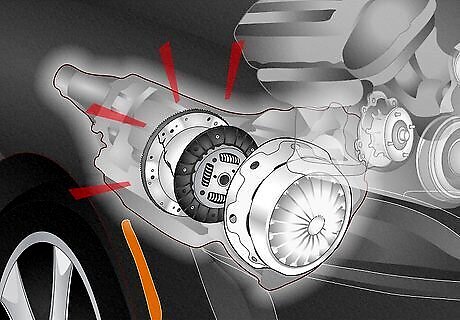
Transmission failures Your transmission is responsible for transferring power from the cylinders in your engine to the wheels. If your vehicle shakes when you’re accelerating (especially at a high speed), it could be a sign the transmission isn’t operating correctly. You’ll likely notice the shaking gets especially bad when you idle or change gears. The fix: The transmission is potentially the most complicated component in your vehicle, so see a mechanic or transmission specialist to get the problem resolved. The cost: It can really vary with transmissions. The average cost is around $2,900, but it may run up to $7,100 if you need a new transmission.
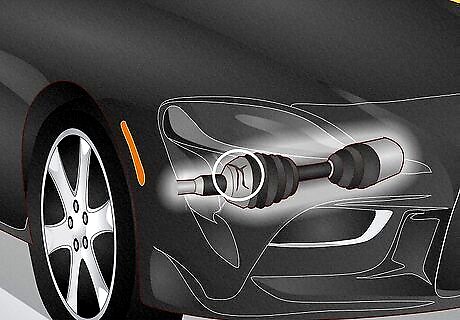
CV joint issues The CV (constant velocity) joint is the coupling at the end of each axle that connects the tire to the main axle. This joint allows the tire to rotate at an angle when you turn. Without CV joints, every turn would require the tires to angle the same direction, which would make turning more than 30-degrees difficult. If a CV joint is bad, the tire may shake when you accelerate and turn. The fix: If the CV joint is cracked, the entire assembly will need to be replaced. However, it could be a lack of lubrication or a bad alignment with the axle. The cost: CV joint replacement will run $150-850 depending on your car model, but they may only need to be lubricated or adjusted which will cost significantly lest.
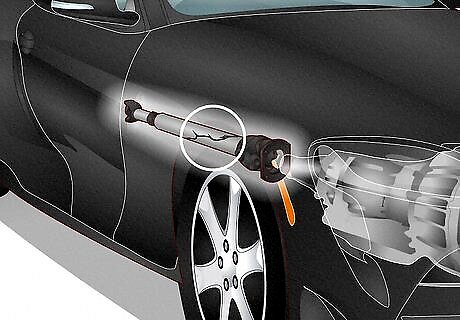
Driveshaft damage The driveshaft sits at the exact point where the front axle connects to the engine. It’s responsible for transmitting torque from the transmission to the wheels. If it’s not delivering the correct amount of torque, it can cause the transmission and axles to wobble as it tries to absorb the excess vibration. The fix: The driveshaft probably needs to be entirely replaced. Luckily, this isn’t a particularly big repair most of the time. The cost: Expect to spend around $500 most of the time for a new driveshaft. If you drive a luxury or exotic car, it can run up to $2,000.
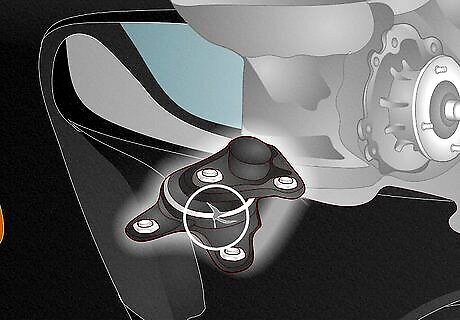
Cracked engine mount The engine mount is the component that holds your engine in place. It’s basically the stage that holds the engine in place. If the engine mount is cracked, the engine will rattle inside of your engine bay and cause your vehicle to vibrate. It’ll be especially strong when you accelerate, and dissipate a bit when you let off of the gas. The fix: See a mechanic to have the engine removed and the mount repaired. It could be a single length that requires work, or the entire mount may need to be swapped out. The cost: If it’s a simple rubber mount it may only run about $150. The odds are you have a steel mount though, which can cost $450-525 to replace.
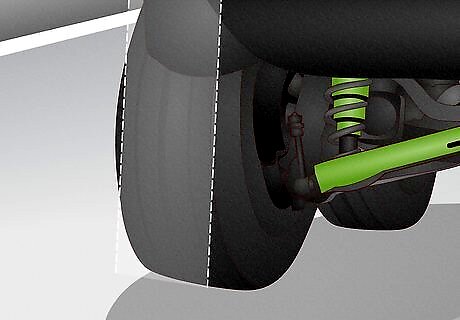
Tire misalignment A vehicle’s alignment refers to the angle of each tire. If the tires are off-kilter, it can cause your vehicle to shake when you drive as the tires fight one another. Notably, you’ll probably notice this kind of shaking when you coast as well, it just won’t be nearly as notable. The fix: Visit your mechanic and tell them you need an alignment. This is one of the most common repairs that mechanics make and requires very little effort. The cost: An alignment should only run $50-100 most of the time.
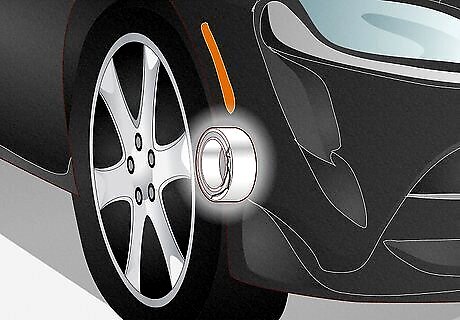
Bad wheel bearings The bearings are a part of the car’s suspension system. They allow the wheels to turn without a ton of friction slowing them down. But if the bearings are damaged or exceptionally dirty, the tire will rub violently against the housing when you accelerate. This will often smooth out when you coast as the wheels level out. You’ll also hear humming noises if the bearings are bad. The fix: The mechanic will need to disassemble the wheel housing and either clean and re-lubricate the bearings, or replace them. The cost: This should run about $350 per wheel, but it may cost more if you have a luxury vehicle or after-market wheels.
Is it safe to continue driving?
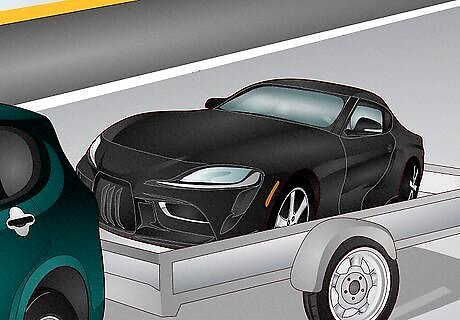
No, it’s best to avoid driving—especially if you’re losing control. Shaking when you accelerate indicates there’s a serious problem with either your engine, or your engine’s ability to distribute power to the other components of your vehicle. This can ultimately lead to serious (and expensive) damage in your engine if you continue driving, and there’s a big chance you could lose power at any moment. If you can still maintain control of the vehicle, it’s okay to keep driving if you go slow and drive immediately to your mechanic. To avoid damaging your engine further, pull over and contact a tow truck to take you to the mechanic. Almost none of the potential repairs are DIY jobs, so leave the work to a pro if you can.
Diagnosis
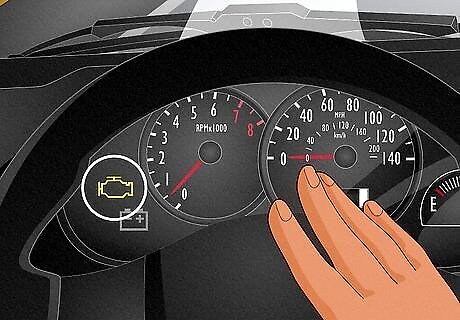
Determine if your check engine light is on. The check engine light can really help you narrow things down when it comes to car shaking. If you’re getting wobbling when you accelerate and the check engine light isn’t on, the problem is very unlikely to be engine-related. If your check engine light is on, it’s unlikely your axles, tires, or transmission are at fault. This can help you narrow down where to look if you’re determined to fix this yourself. If the check engine light is on and you have an OBD-2 scanner, plug it in and run a scan to fetch the error codes.
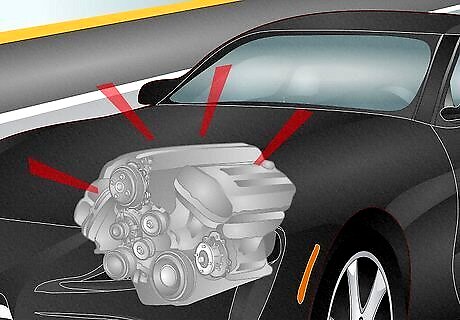
Listen for grinding or banging noises to spot misfires. The sound your engine makes when you accelerate will tell you a lot about where the issue is. Grinding and banging coming from your engine indicate misfiring problems, so listen closely as you accelerate. A clinking noise points to engine damage as the source of the misfire. If you hear a knocking, like someone is beating repeatedly, it’s probably your crankshaft. Humming noises that come from one tire are a major sign that you have bad wheel bearings. If you hear a skirting or high-pitched scratching noise coming from all of your tires, it’s probably your alignment.
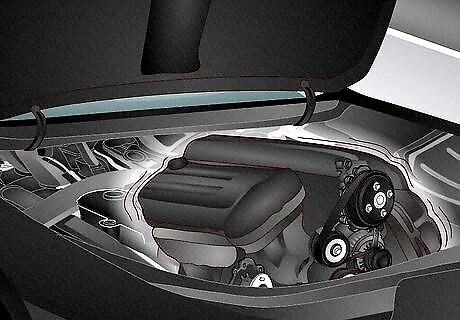
Accelerate with the hood open to see if the engine moves. Pop the hood and have a friend hop in the driver’s seat. Ask them to turn the engine on and slowly accelerate while the vehicle is in park. Does the engine start to shake? Does it rattle and pop out of its position? If so, your engine mount is probably damaged. If you also hear banging and grinding, the misfiring is probably so bad that it’s ripping the engine out of the mount.
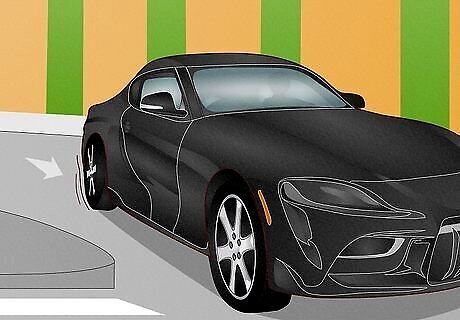
Drive down an empty street to look for wobbling tires. If you have an alley or rarely-travelled street, slowly drive your vehicle there with a friend. Ask them to drive slowly back and forth. If you see one or more of the tires wobbling a bit, the problem isn’t your engine. Either your bearings are bad, the alignment is off, a CV joint is bad, or there’s an issue with your driveshaft. If the tire mainly wobbles when the vehicle turns, the CV joint is probably bad.











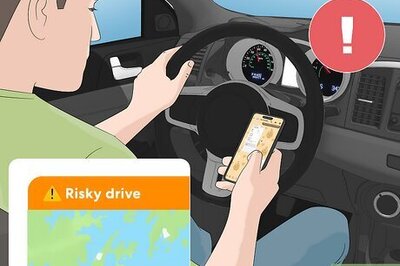

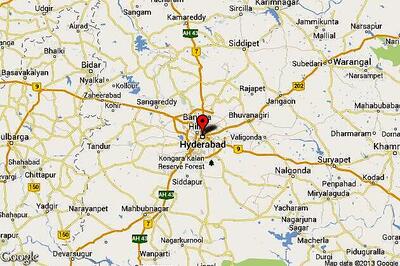


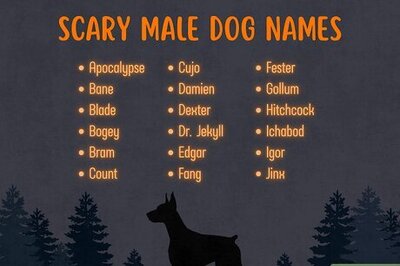
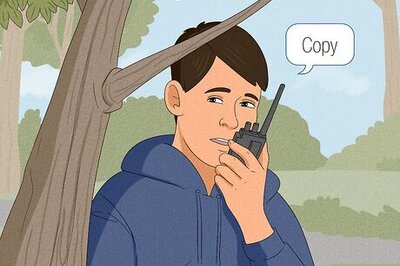
Comments
0 comment